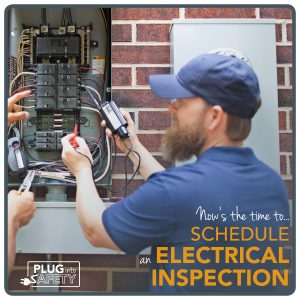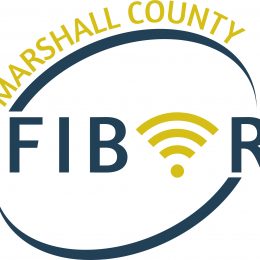 Electricity is something we all take for granted. Unless there’s a power outage, we assume when we flip the switch or turn on an appliance, everything will work as expected.
Electricity is something we all take for granted. Unless there’s a power outage, we assume when we flip the switch or turn on an appliance, everything will work as expected.
We don’t always consider what will happen if something is awry.
“If there’s a problem with your home’s wiring — or if it’s inadequate for the appliances you are using — your home could be at risk for a fire,” said Mark Batman, CEO of Marshall County REMC.
Those fire risks are significant. Between 2007 and 2011, more than 144,000 house fires were attributed to electrical failure or malfunction, noted the National Fire Protection Agency.
“It’s important to have your home inspected by a licensed electrical inspector,” Batman said. “What you find out from the inspection could save your home — and your life.”
During an electrical inspection, your entire electrical system will be thoroughly inspected. All the electrical wires, systems, and components will be checked to ensure they meet National Electrical Code standards. A home’s electrical system includes the electric lead-in wire, the electric meter and meter pan, the circuit breaker panel, the wiring, and the outlets, switches, lights, and other electrical devices.
Before disconnecting an automated meter, the electrician should notify Marshall County REMC at 574-936-3161.
If not notified, Marshall County REMC will receive an outage notification when the meter is disconnected.
During an inspection, the electrical professional will:
- Make sure all the electrical components of your home are working safely.
- Identify any problem areas/wiring mistakes or problems associated with older wiring.
- Check to see if your home has oversized fuses or breakers. They are fire hazards.
- Fix any fire or safety hazards. These include frayed, exposed, or damaged wires as well as outside receptacles that are not GFCI-protected.
- Look for ways you can save energy and, thus, save money.
- Help you meet insurance risk assessment inspection requirements.
The Electrical Safety Foundation notes you should always schedule an electrical home inspection (always with a licensed electrical inspector) if you are purchasing a home, if your home is 40 years or older, when your home has undergone a major renovation, or if you are installing a major new appliance in your home.
In the meantime, here are a few simple ways to check to see if your home may have electrical issues that need to be addressed:
- Flip on as many light switches as you can. Next, turn on the air conditioner or a large appliance like your electric stove. Do the lights dim or get brighter? If so, your neutral or ground connection may be loose.
- Check the main breaker’s size. It should be at least 100 amps, though a 200 amp service nowadays is the norm. If the service needs to be replaced, don’t go with anything less than 200 amps.
- Consider purchasing a plug-in circuit tester, which can test for receptacle polarity and check to see if your GFCI receptacles are working. While using the tester, notice the tightness of the plug. If the receptacle is loose, replace it.
- Make sure the lightbulbs you’re using are the correct wattage for the fixtures. If the wattage is higher than recommended, the wiring in the fixture may be damaged from the excessive heat.
Sources: Electrical Safety Foundation, mrelectric.com, National Fire Protection Agency, forteelectric.com



